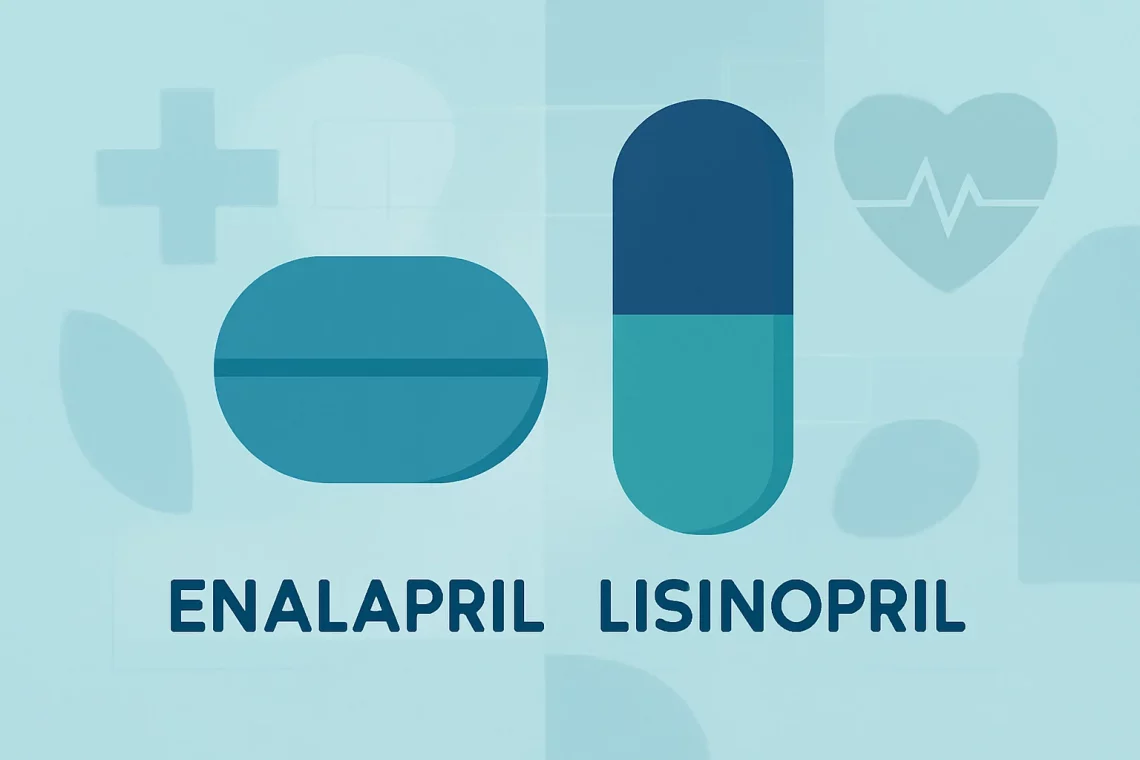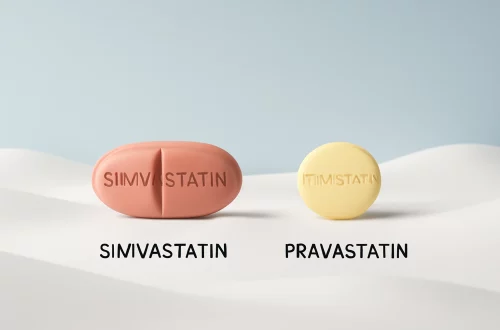-
Lisinopril vs Fosinopril: Which ACE Inhibitor Is Right for You?
Lisinopril and fosinopril are both medications belonging to a class known as angiotensin-converting enzyme (ACE) inhibitors. These drugs are primarily used to manage high blood pressure, but they also play a crucial role in treating heart failure and other cardiovascular conditions. As our understanding of hypertension and heart health has evolved, so too has the development of medications designed to effectively control these issues. The need for effective management of cardiovascular health has never been more critical, given the rising prevalence of hypertension across the globe. Understanding the differences and similarities between medications like lisinopril and fosinopril can empower patients to make informed choices about their treatment options. Both medications…
-
Enalapril vs Lisinopril: Which Medication is Right for You?
Enalapril and lisinopril are two widely used medications in the treatment of hypertension and heart failure. Both belong to the class of medications known as ACE inhibitors, which play a crucial role in managing blood pressure by relaxing blood vessels. This leads to improved blood flow and reduced workload on the heart. Despite their similarities, enalapril and lisinopril possess distinct characteristics that may influence a healthcare provider’s choice of one over the other for a particular patient. The decision often hinges on various factors, including the patient’s overall health profile, other underlying conditions, and potential interactions with other medications. The way these drugs are metabolized and eliminated from the body…
-
Lisinopril vs Valsartan: Which Medication is Right for You?
The management of hypertension and heart-related conditions is critical in promoting overall wellness. Among the various pharmacological agents available, Lisinopril and Valsartan are two commonly prescribed medications that have garnered significant attention. Both drugs are utilized for treating high blood pressure and heart failure, yet they belong to different classes and operate through distinct mechanisms. Understanding the nuances of these medications can empower patients and healthcare providers to make informed decisions regarding treatment options. Lisinopril is an angiotensin-converting enzyme (ACE) inhibitor, while Valsartan is classified as an angiotensin II receptor blocker (ARB). The differences in their mechanisms of action can influence their efficacy, side effects, and overall patient experience. Furthermore,…
-
Lisinopril vs Perindopril: Key Differences and Uses Explained
Lisinopril and Perindopril are two widely used medications that belong to the class of drugs known as ACE inhibitors (Angiotensin-Converting Enzyme inhibitors). These medications play a crucial role in the management of various cardiovascular conditions, particularly hypertension (high blood pressure) and heart failure. The increasing prevalence of these conditions has made it essential for healthcare providers and patients alike to understand the differences and similarities between these two therapeutic agents. Both Lisinopril and Perindopril work by inhibiting the action of the ACE enzyme, which is responsible for converting angiotensin I to angiotensin II – a potent vasoconstrictor that can elevate blood pressure. By blocking this enzyme, both medications help to…
-
Lisinopril vs Captopril: Which ACE Inhibitor Is Right for You?
Lisinopril and captopril are two widely used medications for managing hypertension and heart failure. Both belong to a class of drugs known as angiotensin-converting enzyme (ACE) inhibitors, which play a crucial role in regulating blood pressure and fluid balance in the body. While they share some similarities in mechanism and purpose, there are significant differences in their pharmacokinetics, side effects, and overall efficacy. Understanding these differences is essential for patients and healthcare providers alike, as the choice between the two can significantly impact treatment outcomes. As we delve deeper into the characteristics of lisinopril and captopril, we will explore their mechanisms of action, common uses, potential side effects, and considerations…
-
Lisinopril vs Ramipril: Which Blood Pressure Medication is Right for You?
High blood pressure, also known as hypertension, is a common condition that affects millions of people worldwide. It is often referred to as a “silent killer” because it may not present any noticeable symptoms until serious complications arise. Managing hypertension is crucial to reducing the risk of heart disease, stroke, and other health issues. Various medications are available to help control blood pressure, and two of the most commonly prescribed classes of these medications are ACE inhibitors. Lisinopril and Ramipril are both effective options within this category, but they have distinct characteristics, benefits, and potential side effects. ACE inhibitors work by relaxing blood vessels, allowing blood to flow more freely,…
-
Lisinopril vs Enalapril: Which Medication is Right for You?
High blood pressure, medically known as hypertension, is a prevalent condition that affects millions of individuals worldwide. Managing hypertension is crucial for reducing the risk of serious health issues such as heart disease, stroke, and kidney failure. Among the various treatment options available, two commonly prescribed medications are Lisinopril and Enalapril. Both belong to a class of drugs called angiotensin-converting enzyme (ACE) inhibitors, which work by relaxing blood vessels and lowering blood pressure. Understanding the differences and similarities between these two medications can help patients and healthcare providers make informed decisions about treatment options. While both Lisinopril and Enalapril serve the same primary purpose, they have unique characteristics, including varying…
-
Lisinopril vs Losartan: Choosing the Right Medication for You
High blood pressure, also known as hypertension, is a prevalent health issue affecting millions of people worldwide. It often goes unnoticed, earning it the title of a “silent killer.” If left untreated, high blood pressure can lead to severe complications, including heart disease, stroke, and kidney failure. To combat this condition, healthcare professionals often prescribe medications that help regulate blood pressure levels. Among these medications, Lisinopril and Losartan are two commonly used drugs that belong to different classes but serve similar purposes. Lisinopril is an angiotensin-converting enzyme (ACE) inhibitor, whereas Losartan is classified as an angiotensin II receptor blocker (ARB). Despite their different mechanisms of action, both medications effectively lower…






























